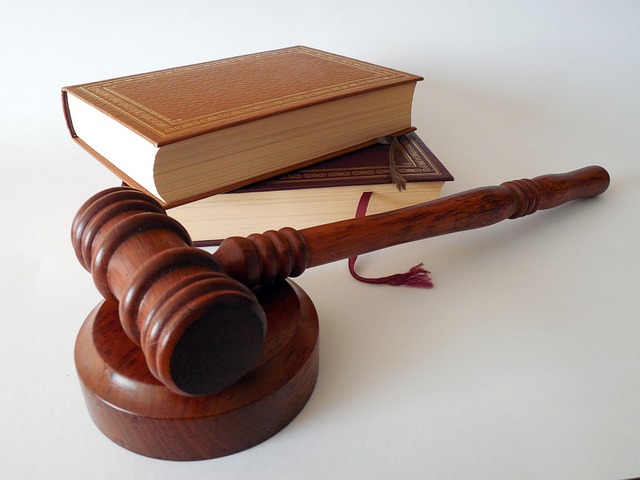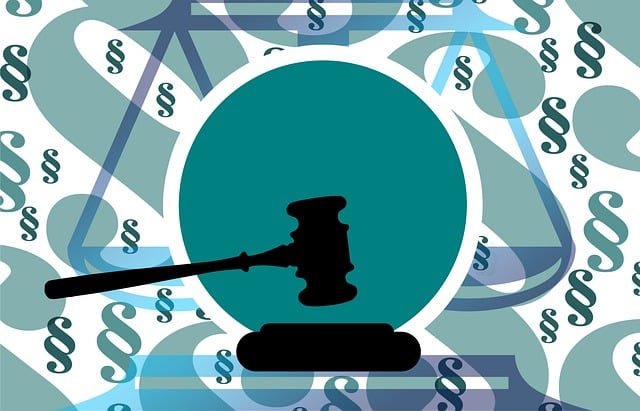Consumer protection laws safeguard individuals from harmful business practices, emphasizing transparency and accountability. Due Process in criminal law cases plays a critical role, ensuring fairness during disputes. This due process guarantees all parties have a fair chance to present their cases, protecting consumers and businesses from wrongful accusations or punishments. Understanding these procedures is crucial for both plaintiffs and defendants in consumer protection suits, leading to just settlements that promote transparency and deter future misconduct.
Consumer protection suits are crucial in ensuring businesses uphold ethical standards and safeguard rights. In this comprehensive guide, we delve into the intricacies of consumer protection laws, highlighting key aspects such as due process, consumer rights, and legal procedures for plaintiffs. Understanding these elements is essential to navigate complex cases effectively. We explore how fair settlements are determined, drawing parallels with the due process principles seen in criminal law cases. By the end, readers will grasp the vital role played by these protections in fostering a just marketplace.
- Understanding Consumer Protection Laws
- The Role of Due Process in Suits
- Protecting Consumers: Rights and Remedies
- Navigating Legal Procedures for Plaintiffs
- When is a Settlement Fair?
Understanding Consumer Protection Laws

Understanding Consumer Protection Laws is paramount in ensuring fair practices within the marketplace. These laws serve as a safeguard for individuals, protecting them from deceptive or harmful business conduct. At their core, consumer protection regulations aim to level the playing field, promoting transparency and accountability among businesses. By implementing stringent standards, these laws empower consumers to make informed decisions, fostering trust in various transactions.
In the realm of consumer protection suits, due process in criminal law cases plays a pivotal role. It guarantees that businesses adhere to legal protocols, ensuring their actions are scrutinized and justified. This is particularly crucial when dealing with complex matters involving large corporations or high-stakes disputes. Through meticulous navigation of these laws, consumers can pursue justice, winning challenging defense verdicts while also encouraging businesses to uphold their responsibilities to the philanthropic and political communities at large.
The Role of Due Process in Suits

In consumer protection suits, ensuring due process is paramount to upholding justice and protecting both consumers and businesses alike. Due Process in Criminal Law Cases principles guarantee that all parties involved have a fair chance to present their arguments and evidence, ensuring no one is wrongfully accused or punished. This is especially crucial in complex legal battles where the stakes are high for both the plaintiffs seeking redress and the defendants fighting off allegations.
An unprecedented track record across the country demonstrates the importance of due process in these cases. By adhering to strict procedural guidelines, courts maintain a balanced approach, allowing consumers to seek remedies while ensuring businesses are not subjected to frivolous or baseless charges. Avoiding indictment through robust due process protections fosters a fair legal environment where truth and justice can prevail without sacrificing fundamental rights.
Protecting Consumers: Rights and Remedies

In consumer protection suits, ensuring due process in criminal law cases is paramount to safeguarding individual rights and freedoms. Consumers, like any other citizens, are entitled to fair treatment and a robust legal framework that protects their interests. This includes the right to be heard, access to justice, and the application of established laws and regulations. When businesses engage in deceptive or fraudulent practices, consumer protection laws come into play, offering a range of remedies. These can include monetary compensation for losses suffered, injunctions to stop harmful activities, and even criminal charges against individuals responsible for such misconduct.
Understanding the rights and remedies available is crucial for both consumers and respective businesses. In high-stakes cases, particularly those involving white collar defense, effective legal representation is essential. Consumers must be able to navigate the legal system confidently, ensuring their voices are heard and their rights upheld. Equally, businesses have a responsibility to conduct themselves ethically, avoiding practices that could lead to consumer protection suits. By adhering to legal guidelines and maintaining transparency, companies can foster trust with their customers and avoid potential legal repercussions.
Navigating Legal Procedures for Plaintiffs

Navigating legal procedures for plaintiffs in consumer protection suits can be complex and daunting, especially when dealing with high-stakes cases. Understanding due process in criminal law cases is crucial as many civil lawsuits draw parallels with their criminal counterparts. The plaintiff must ensure that they follow the correct protocols, presenting a robust case while adhering to the rules of evidence and procedure.
A general criminal defense strategy can be adapted to consumer protection suits, focusing on challenging the evidence and witnesses presented by the opposing party. Successful defense verdicts in such cases often hinge on meticulous preparation, expert testimony, and a thorough understanding of both state and federal laws governing consumer rights.
When is a Settlement Fair?

A fair settlement in consumer protection suits is determined by several factors, one of which is ensuring due process, a principle deeply rooted in criminal law. This means that both consumers and businesses involved must be afforded their legal rights, including the right to present evidence, confront witnesses, and have a neutral third party decide the case. In the context of white-collar and economic crimes, where cases can be complex and intricate, a fair settlement often involves reaching an agreement that provides justice for harmed consumers without unjustly punishing businesses that may have acted with reasonable care or under unusual circumstances.
A settlement is considered fair when it balances compensation for consumer harm with the need to prevent unwarranted business disruptions. It’s not merely about securing a complete dismissal of all charges, but rather achieving a resolution that reflects the severity of the infraction and serves as a deterrent for similar misconduct in the future. This approach ensures that consumers receive fair redress while businesses have an opportunity to learn from their mistakes, thereby fostering a more transparent and equitable marketplace.
Consumer protection suits play a vital role in safeguarding individuals’ rights, ensuring businesses uphold their responsibilities, and fostering fair market practices. By understanding both consumer rights and the legal procedures involved, plaintiffs can navigate these complex cases effectively. The due process clause, a cornerstone of criminal law principles, guarantees fairness throughout the litigation process, ensuring consumers receive justice for any violations. When settlement offers are considered, evaluating their fairness involves assessing the strength of the case, potential costs, and the impact on both parties’ interests. Ultimately, staying informed and seeking legal guidance is essential to achieving favorable outcomes in consumer protection suits.






